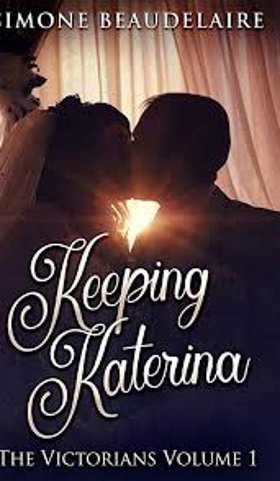Mrs. Wilder snapped in response, “Is a woman a child in need of discipline?
I think most wives are adults and can make their own choices about their behavior. If a husband has a complaint, he should try saying it. Being able to converse with your spouse is sensible, but so many men refuse, just as the Duke
of Ferrara did.”
“Even if most husbands treat their wives gently, and most fathers discipline
their children appropriately, not having a caveat in the law to deal with abuse leads to situations like these, where power-hungry men can torture their
dependents and even kill them,” Katerina said as she squeezed her husband's
hand, thankful he was trustworthy.
He squeezed back and then slid his arm behind her.
“Well, I still think the poem is ugly,” the girl who had been so prone to pouting last week said sulkily.
“Miss Carlisle,” Cary told the girl, “given what he is trying to do, a pretty poem would make little sense.”
“I suppose,” the golden-haired girl sighed, “and I promise to give a tithe of
my pin money this week to help… someone. Now, can we please read something
prettier?”
“If you want something pretty, Miss Carlisle,” Cary replied, his voice warm
with attraction, his eyes urging her to notice him, “I have just the thing.” He crossed to the bookshelf and scooped up a volume.
“‘The Lady of Shalott', by Alfred, Lord Tennyson. 'On either side the river lie/ long fields of barley and of rye…’”
From the first elegant lines, Miss Carlisle sighed with pleasure.
Katerina listened too. The sad, sweet beauty of the words washed over her,
making her smile. She gave herself over to it, loving the skillful manipulation of
words, the sound of James Cary's well-modulated voice as he attempted to woo
Miss Carlisle, the shivery pleasure of her husband's hand on her, stroking.
Such a lovely poem provoked silence rather than conversation, and at its
conclusion the guests began to drift away, drenched in images of the lovely lady
singing while she wove a tapestry.
“Ready to go, love?” Christopher asked as the scene faded from her
imagination.
“Oh yes, let's.” Katerina's smile grew wider. Rising they located their
hostess. “Thank you for the lovely evening, Mrs. Wilder,” Katerina said sweetly.
“Thank you for coming, Mrs. Bennett. Your apt comments were greatly
appreciated.”
“Mrs. Wilder, we will not be attending for several weeks,” Christopher
informed her. “We'll be taking a trip to Italy, starting in the morning.”
Their host beamed at them. “Well, I hope you both enjoy yourselves. Some
Italian sunshine in February sounds lovely.”
“It does,” Katerina agreed. “I'm looking forward to it.”
With matching smiles, they took their leave and headed outside. Apparently,
Katerina was not the only one who had been moved by the last poem. No sooner
did the hansom driver hop into his seat behind them, then Christopher pulled her
close, planting wet sweet kisses on her mouth, one after the other.
“Goodness, darling,” she said as his lips trailed the delicate arch of her throat. “Is everything all right?”

























